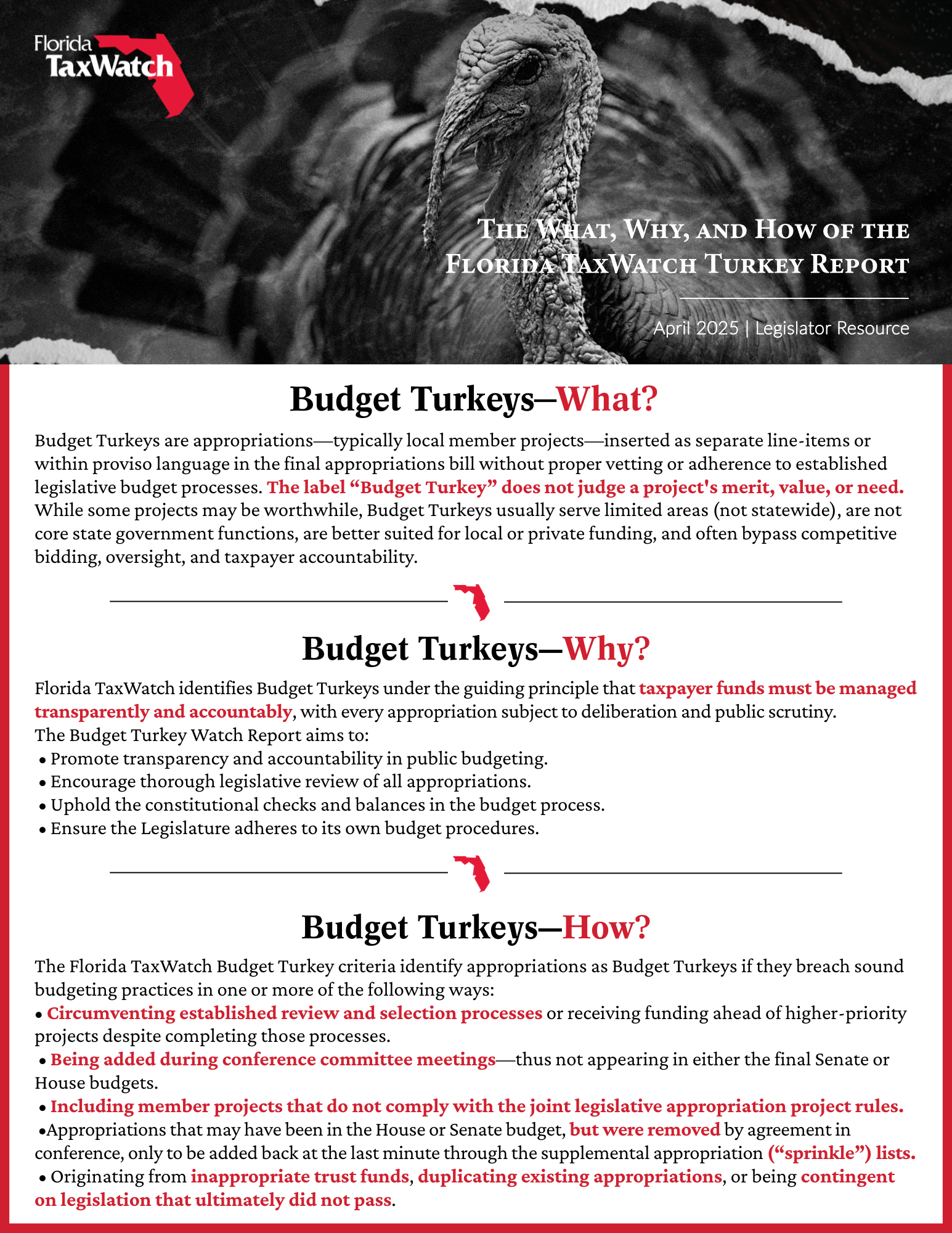Florida TaxWatch’s annual Budget Turkey Watch Report for 2025 meticulously examines the state budget to identify appropriations that deviate from sound fiscal management principles. Below is an expanded overview of what Budget Turkeys are, why they are identified, and how they are determined.
Budget Turkeys—What?
Budget Turkeys are appropriations—typically local member projects—inserted as separate line-items or within proviso language in the final appropriations bill without proper vetting or adherence to established legislative budget processes. The label “Budget Turkey” does not judge a project's merit, value, or need. While some projects may be worthwhile, Budget Turkeys usually serve limited areas (not statewide), are not core state government functions, are better suited for local or private funding, and often bypass competitive bidding, oversight, and taxpayer accountability.
Budget Turkeys—Why?
Florida TaxWatch identifies Budget Turkeys under the guiding principle that taxpayer funds must be managed transparently and accountably, with every appropriation subject to deliberation and public scrutiny. The Budget Turkey Watch Report aims to:
- Promote transparency and accountability in public budgeting.
- Encourage thorough legislative review of all appropriations.
- Uphold the constitutional checks and balances in the budget process.
- Ensure the Legislature adheres to its own budget procedures.
By highlighting these appropriations, the report fosters a more responsible and equitable allocation of taxpayer funds.
Budget Turkeys—How?
The Florida TaxWatch Budget Turkey criteria identify appropriations as Budget Turkeys if they breach sound budgeting practices in one or more of the following ways:
- Circumventing established review and selection processes or receiving funding ahead of higher-priority projects despite completing those processes.
- Being added during conference committee meetings—thus not appearing in either the final Senate or House budgets.
- Including member projects that do not comply with the joint legislative appropriation project rules.
- Appropriations that may have been in the House or Senate budget, but were removed by agreement in conference, only to be added back at the last minute through supplemental appropriation (“sprinkle”) lists.
- Originating from inappropriate trust funds, duplicating existing appropriations, or being contingent on legislation that ultimately did not pass.
By identifying these issues, the report encourages lawmakers to prioritize projects that deliver the most benefit to Floridians and to improve the budgeting process to prevent such appropriations in the future.
